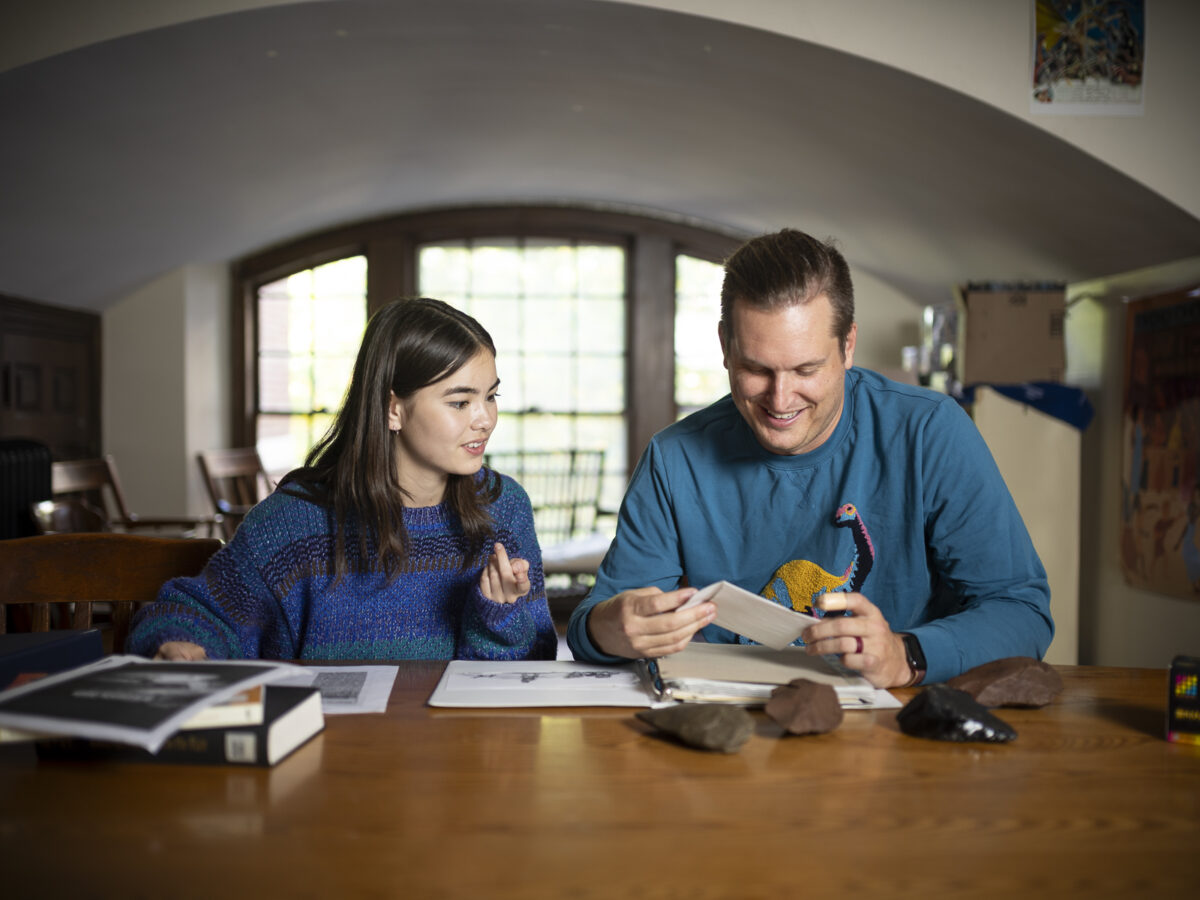Serving up history

History Instructor Troy Samuels brings his career in archaeology to his course, "History Through Food"
Troy Samuels is known for making learning history a whole-body experience. Students in his HIS568: History Through Food course, for example, examine the relationship between cultures and food around the world through readings, then prepare a meal based on the concepts they’re discussing. “We have Harkness in the classroom, then we have Harkness in the kitchen,” Samuels says.
The course was inspired by a student project in one of Samuels’ 300-level European history classes. “A student from Venezuela researched the creation of Venezuelan food at the intersection of European and South American culture, which I thought was really cool,” Samuels says. “There are so many rich intersections between how food and the everyday lives of people interact with history.”
Based on themes provided by Samuels, each week two student “chefs” create a menu around a recipe they select and join Samuels in the basement of the Elizabeth Phillips Academy Center to cook a three-course meal. Exploring various themes such as food and economy, or food and empire, students prepare a variety of dishes — for example, lamb stew using ingredients adapted from a Babylonian cuneiform tablet or lobster rolls after discussing food and social status. They’re urged to taste everything (barring dietary restrictions or allergies). And, under Samuels’s supervision, they’re learning real cooking skills. “One of the broader trends we explore is how interconnected our world is,” he says. The class becomes a community event, especially on cooking days. “People invite their friends to help cook, to try things, to understand what they’re doing, and it becomes a little party,” he says.
In addition to cooking, Samuels encourages his students to engage with the active work of historians: digging. He is an archaeologist and a specialist in the material culture of understudied people in the ancient world. As a senior staff member on the Gabii Project, an international archaeological initiative in Italy, he has offered Exeter students the opportunity to work with him at the site outside Rome for the past two summers. “They’re the only high school students there, and they really distinguish themselves because they’re so insightful and energized,” Samuels says. “It’s also a great opportunity for them to experience a different side of being a historian.”
Samuels jokes that, “with a name like Troy, I was doomed to be an ancient historian,” but his hope is for students to find joy in learning history. “It’s about finding engagement with the past and that search for complexity and understanding and how that can be really rewarding,” he says.